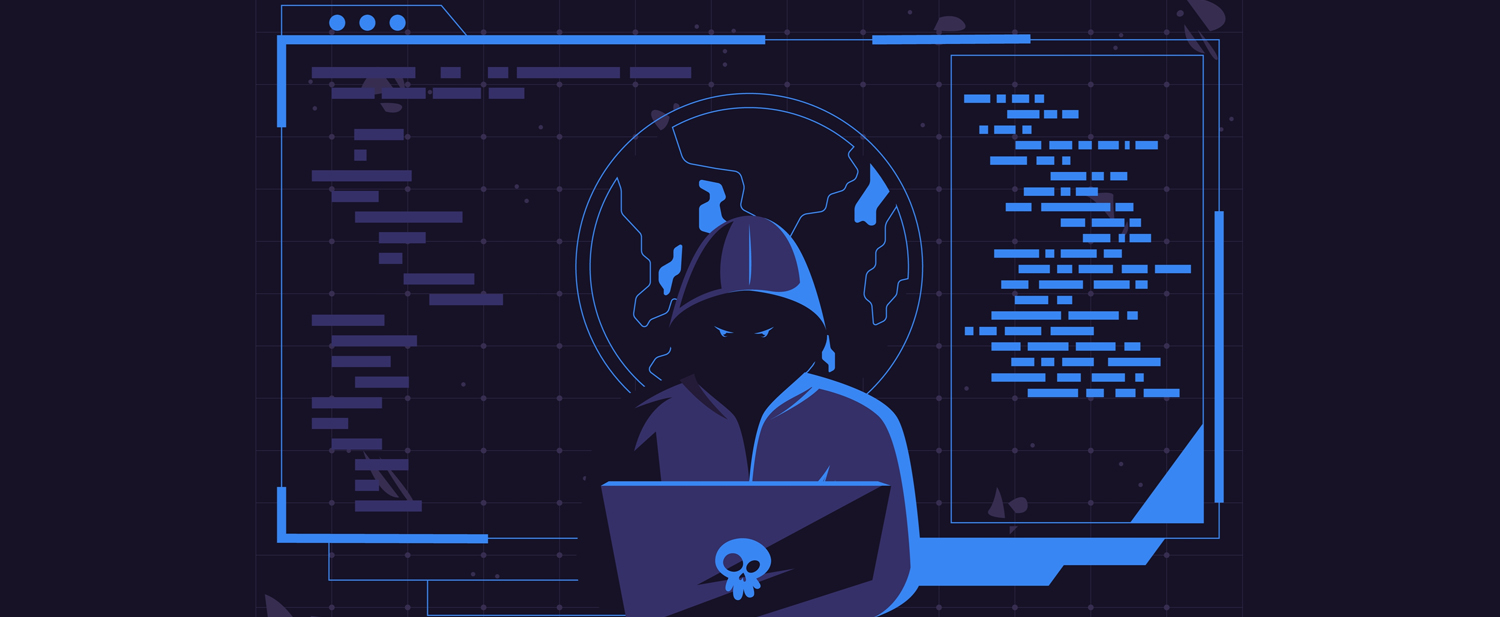
Spyware: What is it, and how can you protect yourself against it?
It’s a cliche at this point, but our personal devices hold a lot of data. From banking information to our internet history – your phone remembers more stuff about you than you do. And that can be anything: from credit card information, to photos from that party where you passed out on the couch. So of course, even if you don’t realize it, there are hands constantly trying to harvest that information. And that’s where spyware comes in.
Spyware is a particularly nasty thing to have on your device. You don’t know if it’s there, you don’t know what it does, and yet it is always there, watching.
Recently, everyone in the world learned the word ‘spyware’ because of the Pegasus scandal. But as bad as that was [and still is], the NSO-developed malware is far from the only kind of spyware out there.
The Internet is crawling with creepy-crawlies, that are looking to get their hands on any kind of information you may have lying around. So, naturally, you have to stay one step ahead of the danger.
Surfshark One: The full security suite for online protection!
What is spyware?
Spyware is a particularly nasty brand of malware. And what sets is apart from all the other worms is viruses, is that it acts unlike any of them.
But let’s get the basics out of the way first.
Spyware is malicious software designed to gather data like user browsing habits, preferences, downloads, credentials from a target device. The recipient of this information could be pretty much anyone. Sure, cybercriminals don’t shy away from using spyware, but your local hooded hacker is not the only one who might be a threat.
Spyware is widely used by advertisers, data colelction firms, browser plugins, untrustworthy VPNs, and, of course, the government on occasion.
Contrary to popular belief, spyware is not harmless.
For starters, it infects a user’s device without consent from the user. It can also damage the target device, albeit it is typically used to track or steal data. And that just might be worse than the occasional virus headache.
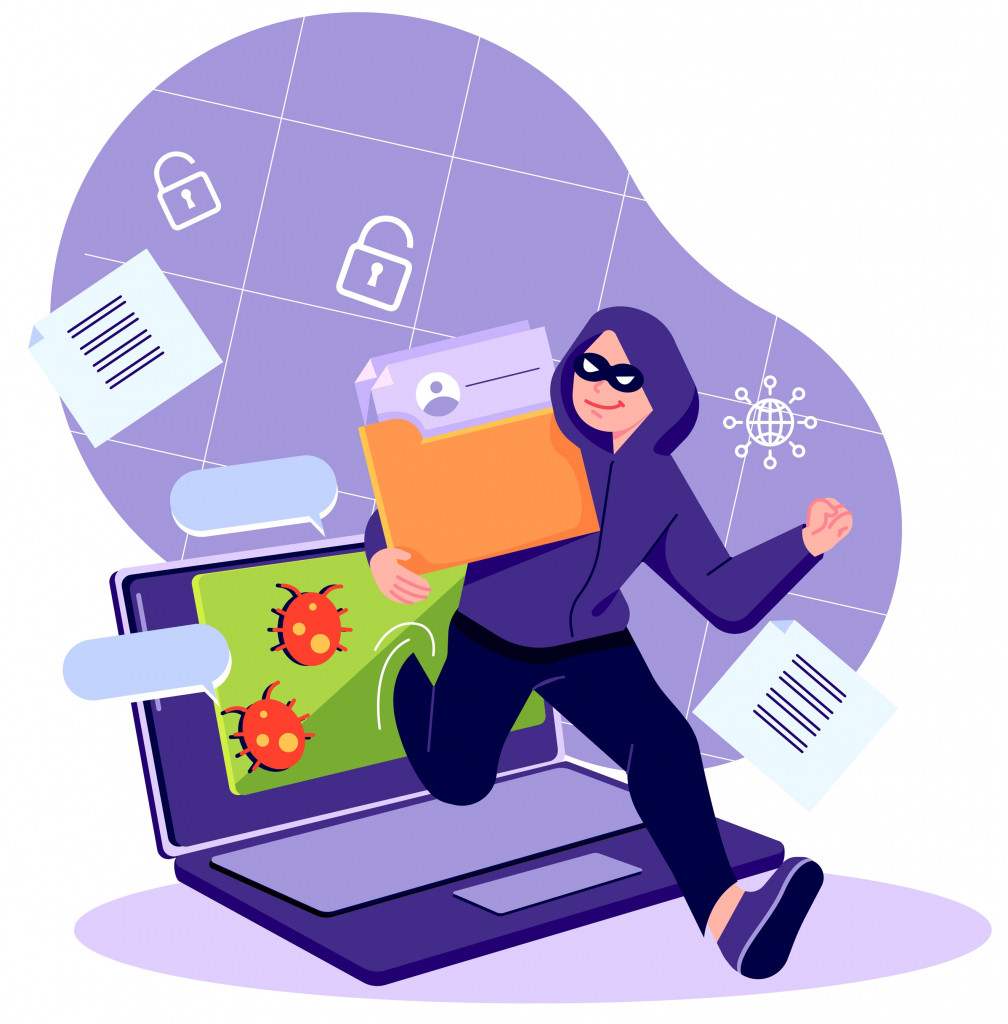
And if you think you’re safe – think again. About 80% of all devices in the world are infected with some for of spyware!
How does it work?
Most forms of malware aim to cause as much damage as possible in a short amount of time. But not spyware.
Spyware works covertly in the background and hides from the user. It just lurks on your device and reports whatever it set out to find to its owner. Victims hardly even realize that their devices have been infected until they start digging. This makes it one of the nastiest types of malware to deal with.
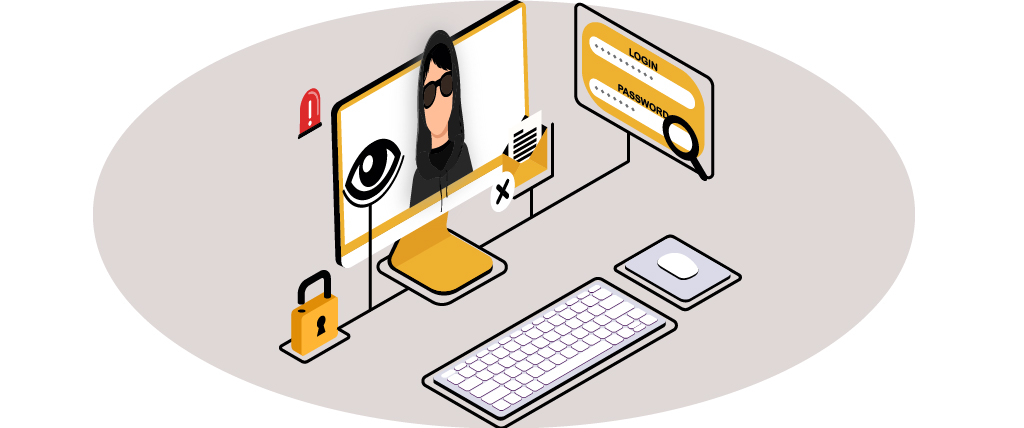
Spyware takes many shapes, forms, sizes, and intentions. It can attack both computers and mobile devices, typically masquerading around. Yes, that has a ‘massive breach of privacy‘ written all over it.
It can also come in the form of keyloggers to gather your credentials that can then be used to gain access to your bank accounts, workplaces, emails, and so on. In addition, it can be employed to gain access to your device remotely or install and even launch apps.
How do you get spyware?
Spyware is not your average malware, so it doesn’t act like adware or viruses. Its intent is not to spread as much as possible. It is usually highly targeted and methodical in what it does.
Your device can get a personal touch with spyware through:
- Attachments and programs that seem harmless.
- Drive-by downloads.
- Browsers, especially old ones that are not up to date with security.
- Sometimes spyware infects your device along with other kinds of malware.
Needless to say, an attacker can also infect your device by directly installing the spyware if they have access and control of that device.
How do I know if my device is infected?
You usually don’t.
It’s hard to know whether your device has spyware, and it’s usually not even spyware itself that grabs your attention.
Spyware rarely comes alone. And while that might seem and actually is worse, this can also be the saving grace that helps you identify the problem. It’s often accompanied by adware or some other malicious code, that might give it away.
Sophisticated spyware can even disable firewalls and antiviruses.
While it’s hard to know you have spyware, if you suspect you do, these are the signs to watch out for:
- your device seems to be overloaded with tasks.
- you suddenly run out of disk space or a big chunk of it.
- the device starts experiencing internet connection issues or seems to be channeling a lot of data.
- plugins, extensions, and programs install themselves on your device.
- your device starts experiencing strange issues, such as apps acting up, booting problems or your preferences changing.
Note that some of these signs can be a result of other things. Nonetheless, if you notice any of them, the best action is to check if your device is affected.
The dead giveaway, however, is that your personal information or access credentials get stolen, and you don’t know how that happened.
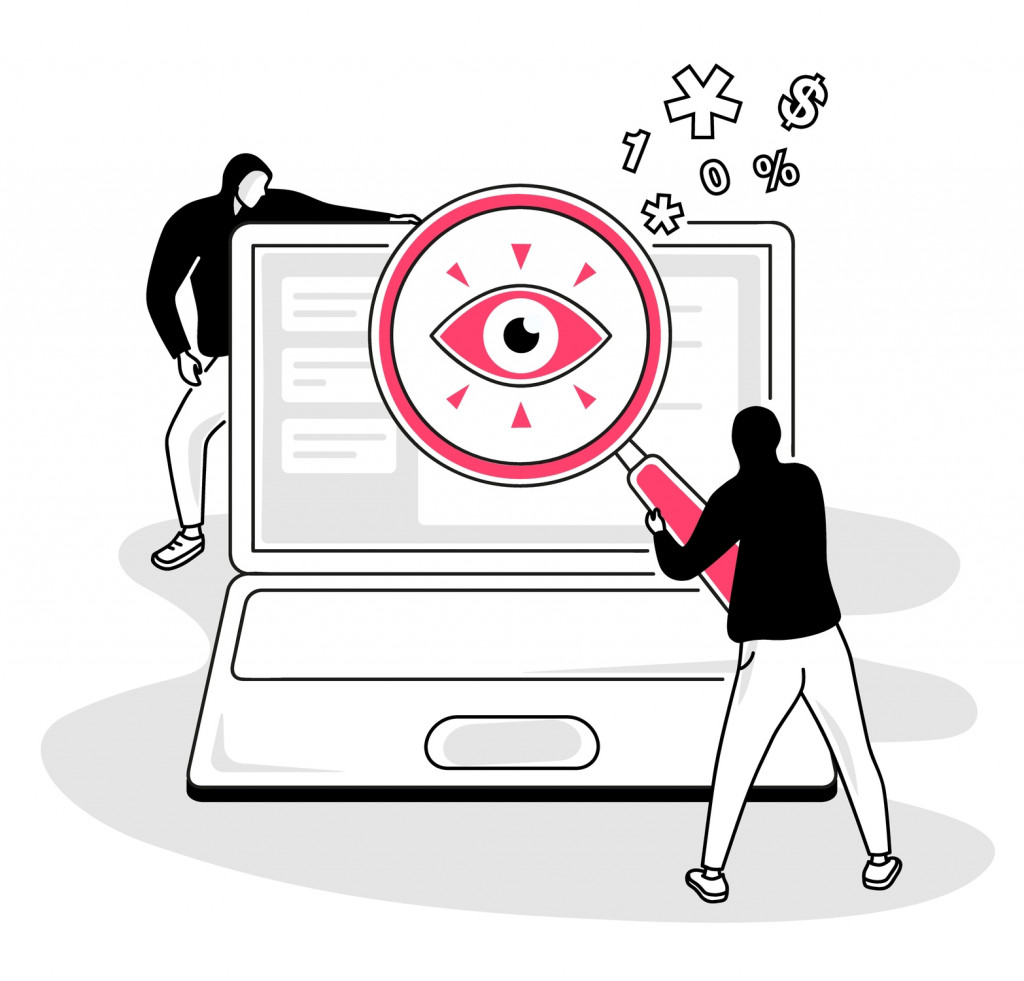
How do you protect yourself from spyware?
Spyware is becoming more sophisticated every day, and you likely won’t see it coming. Worse still, your devices can get infected at pretty much any time using various means. You don’t have to do anything out of the norm to catch some nasty spyware.
This is precisely why you should take the fight to them, and protect your device before it becomes a means to spy on you.
Here are some of the measures you can take:
- Only access and download files from trusted sites.
There are a lot of websites that lure users under the guise of being legitimate. If you have doubts about the sites you want to visit, confirm with updated online lists of threat websites. - Install a good antivirus.
Opt for a premium and trustworthy tool with proven results, as some of the ‘free’ software actually distributes spyware. Remember to keep these solutions updated because they usually work based on real-time updates. - Be careful when accessing your emails or downloading files from the email.
Email is the gateway for all sorts of malware, including spyware. Do not click on attachments from sender addresses outside your contact list unless you know you can trust them. - Update your system.
Software creators usually release updates to continually improve security. Always update your device, browser, and other applications regularly to stay ahead of the curve. - Avoid installing software or applications from shady sources.
While most systems have an in-built function that prevents such action, it is still possible to bypass these measures. If you must get your hands on an application file from a different source, ensure it’s legitimate. - Use a VPN with malware blocking features.
In addition to rerouting and encrypting your traffic, giving you a massive defense boost, a good VPN will help you avoid dangers like spyware.
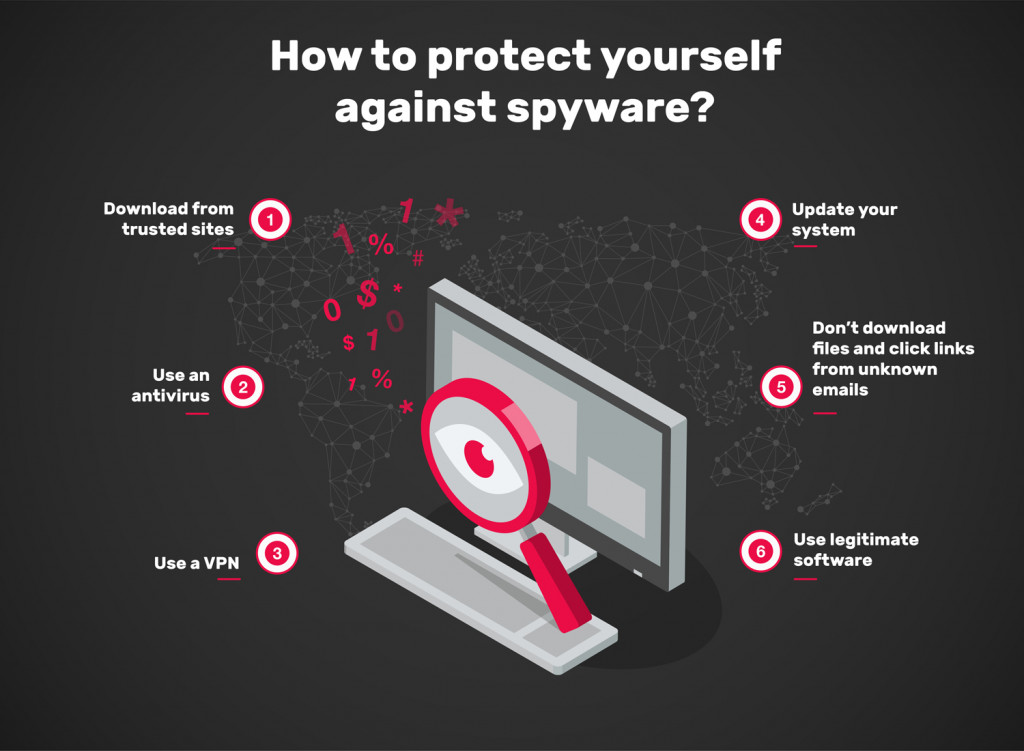
As experts in this space, one of the services we can endorse is Surfshark One. It’s not just a VPN, but a full-on online protection suite created to keep you absolutely safe and protected online at all times.
Another great, truly premium solution is ExpressVPN. It is equally good at blocking malware, including spyware, and even gives you reports on it.
Conclusion
The evolution of the internet and advancement of technology has made it easier for cybercriminals to exploit the relationship between man and machine. Today, no device or user is immune to spyware threats.
For this reason, you need to ensure that all of your devices are protected at all times.
Remember, spyware doesn’t need much to steal your information or install a back door to your device. All it takes is the malicious code making it onto your device. As such, prevention is a safer and better approach than dealing with the fallout.




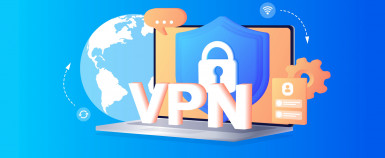
Leave a Reply